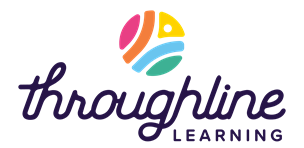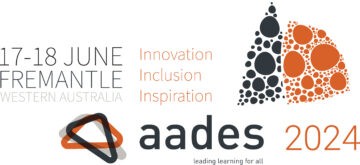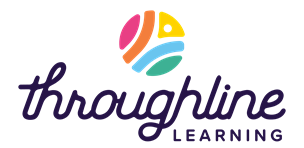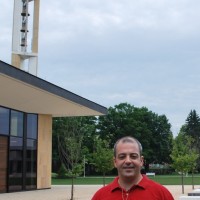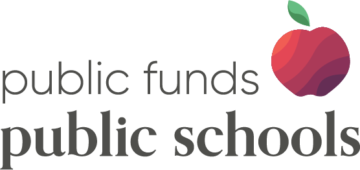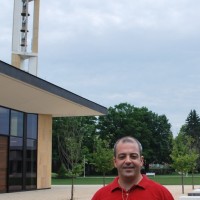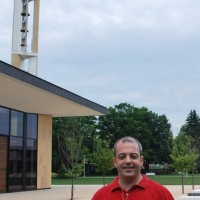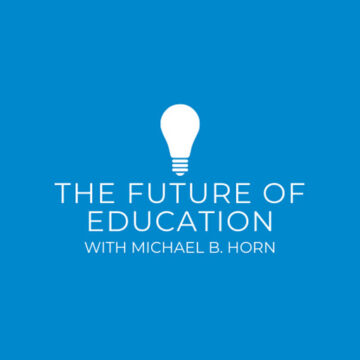November 4, 2023
From Stories to Strategies: An Integrated Approach to SEL
An item from a K-12 blended learning organization.
Recapping takeaways from our first event
No images? Click here
From Stories to Strategies: An Integrated Approach to Social Emotional Learning
“I want to tell you how inspired I was by this — I really needed this presentation. I teach special education in a contained, behavioral SEL class and for the past few weeks I’ve been so downhearted because it’s so difficult in so many ways. Both presenters reignited my purpose and helped me carve a path forward. And I really want to thank you for that.” – Event Attendee
Last week, we hosted our first in-person event as Throughline Learning! Building a Culture of Compassion through Trauma-Informed Practices featured Dr. Richard Booth and Malika Ali as they wove together research, stories, classroom strategies, and systems to support compassionate community-building.
This debut felt like a homecoming in many ways. Prior to the pandemic, our organization was well known for our convenings built around fun, networking, and meaningful conversations. It was amazing to introduce our new name and brand in front of a warm audience and reinforce that we are the same team with the same mission, vision, and values — writing a new chapter in our work supporting better outcomes for schools, classrooms, and students.
A Call for Action
National trends support what we’ve been hearing from educators, leaders, and families about student well-being over the past two years:
- In 2021, 42% of students felt persistently sad or hopeless and nearly one-third (29%) experienced poor mental health (CDC). This led the American Academy of Pediatrics, American Academy of Child and Adolescent Psychiatry, and Children’s Hospital Association to declare a national emergency in children’s mental health.
- In 2022, 69% of public schools reported an increase in the percentage of their students seeking mental health services at school since the start of the pandemic, and 76% of schools reported an increase in staff voicing concerns about their students exhibiting symptoms such as depression, anxiety, and trauma (NCES).
Educators have had to work harder than ever to support a larger range of behaviors and academic needs and address student well-being before attending to academic lessons and interventions. Understanding how to integrate trauma-informed practices into all aspects of the school day has never been more needed.
Applying a Growth Mindset
Dr. Booth began by sharing that optimism is not an innate trait but a learned response. Evidence says that we have a left brain and a right brain. Though there’s integration, there is some localization. The left side of your brain is the “logical, math side”; while the right side is the “artistic side”. The right side, however, processes negative emotions better, while the left side processes positive emotions better.
In life, we process scenarios all the time that may seem purely negative — such as a car crash. In those moments, if we pause to consider potential positive aspects of the situation — no one was seriously hurt, bystanders offered support, insurance enabled the purchase of a better car — we can actually re-hardwire our brains. If we practice generating alternative, more positive viewpoints, we have the power to change our brains, making us more optimistic and more adept at processing information with a more hopeful lens.
How does this apply to schools? When we’re working with our students and processing their experiences and stories — as well as our own — we must remember that the end of a story is not written in stone. Children are not lost causes and adults are not “unchangeable”. As we work through situations with students, we can proactively offer alternative interpretations of behaviors, new understandings of one another’s perspectives, and manageable next steps they can take toward a more positive trajectory. This also helps us reframe the narratives we as adults hold — consciously or subconsciously — about students, empowering us all to become less emotionally reactive, less prone to right brain impulses.
What’s Next? A New Community of Practice
Listening to our presenters share stories and strategies was a great first step for our audience of teachers, school counselors, social workers, nonprofit staff, school leaders, district administrators, and community members. Interest in follow-up opportunities to implement and collaborate was clear.
We are excited to launch a brand new virtual fellowship experience to connect implementing educators and leaders across districts. The Social Emotional Learning Fellowship (SELF) cohort will offer a collective approach to integrating culturally responsive SEL strategies in schools and classrooms.
No comments yet.
RSS feed for comments on this post. TrackBack URI
- SEO Powered Content & PR Distribution. Get Amplified Today.
- PlatoData.Network Vertical Generative Ai. Empower Yourself. Access Here.
- PlatoAiStream. Web3 Intelligence. Knowledge Amplified. Access Here.
- PlatoESG. Carbon, CleanTech, Energy, Environment, Solar, Waste Management. Access Here.
- PlatoHealth. Biotech and Clinical Trials Intelligence. Access Here.
- Source: https://virtualschooling.wordpress.com/2023/11/04/from-stories-to-strategies-an-integrated-approach-to-sel/
- :has
- :is
- :not
- 13
- 16
- 2021
- 2022
- 203
- 32
- 7
- a
- About
- academic
- Academy
- across
- actually
- address
- adept
- administrators
- adults
- All
- also
- alternative
- amazing
- American
- an
- and
- Anxiety
- Apply
- approach
- ARE
- around
- AS
- aspects
- Association
- At
- attending
- audience
- banner
- because
- become
- been
- before
- began
- begin
- behavioral
- behaviors
- Better
- both
- Box
- Brain
- brains
- brand
- Brand New
- built
- but
- by
- call
- CAN
- car
- Category
- causes
- Center
- change
- Chapter
- child
- Children
- class
- classroom
- clear
- Cohort
- collaborate
- Collective
- comment
- comments
- community
- Concerns
- Connect
- Consider
- contained
- conversations
- Crash
- culturally
- Culture
- data
- day
- debut
- depression
- difficult
- district
- does
- dr
- Education
- educators
- emergency
- emotional
- emotions
- empowering
- enabled
- end
- Ether (ETH)
- Event
- EVER
- evidence
- excited
- Exhibiting
- experience
- experienced
- Experiences
- families
- featured
- feedback
- felt
- few
- First
- For
- Forward
- from
- front
- fun
- generating
- great
- Growth
- had
- harder
- Have
- Health
- health services
- hearing
- helped
- helps
- hold
- hopeful
- Hospital
- hosted
- How
- How To
- However
- HTTPS
- Hurt
- i
- identifier
- if
- images
- implement
- implementing
- in
- Increase
- information
- innate
- inspired
- insurance
- integrate
- integrated
- Integrating
- integration
- interest
- interventions
- into
- introduce
- IT
- known
- larger
- launch
- leaders
- learned
- learning
- Led
- left
- Lens
- less
- Lessons
- Life
- like
- Localization
- lost
- Making
- manageable
- many
- math
- May..
- me
- meaningful
- Members
- mental
- Mental health
- Meta
- Michael
- Mission
- Moments
- more
- must
- my
- name
- narratives
- National
- nearly
- needed
- needs
- negative
- networking
- never
- New
- next
- no
- Nonprofit
- of
- offer
- offered
- on
- ONE
- One-third
- opportunities
- Optimism
- Optimistic
- or
- organization
- our
- outcomes
- over
- own
- pandemic
- past
- path
- pause
- percentage
- persistently
- perspectives
- plato
- Plato Data Intelligence
- PlatoData
- pm
- poor
- positive
- Post
- potential
- power
- practice
- practices
- presentation
- Prior
- process
- processes
- processing
- public
- purchase
- purely
- purpose
- range
- really
- reduce
- reinforce
- remember
- Reported
- research
- resource
- response
- responsive
- Richard
- right
- same
- says
- scenarios
- School
- Schools
- seeking
- seem
- SELF
- seriously
- Services
- Share
- sharing
- side
- Simple
- since
- site
- situation
- situations
- So
- Social
- some
- spam
- special
- Staff
- start
- Step
- Steps
- STONE
- Stories
- Story
- strategies
- Student
- Students
- such
- support
- Supporting
- Symptoms
- syndication
- Systems
- TAG
- Take
- Takeaways
- teachers
- team
- tell
- than
- thank
- that
- The
- their
- There.
- they
- this
- those
- though?
- Through
- time
- to
- together
- toward
- trajectory
- Trends
- two
- under
- understanding
- us
- uses
- Values
- viewpoints
- Virtual
- vision
- want
- warm
- was
- ways
- we
- Website
- week
- Weeks
- WELL
- What
- when
- while
- will
- with
- WordPress
- Work
- workers
- working
- writing
- written
- years
- yet
- you
- Your
- zephyrnet

